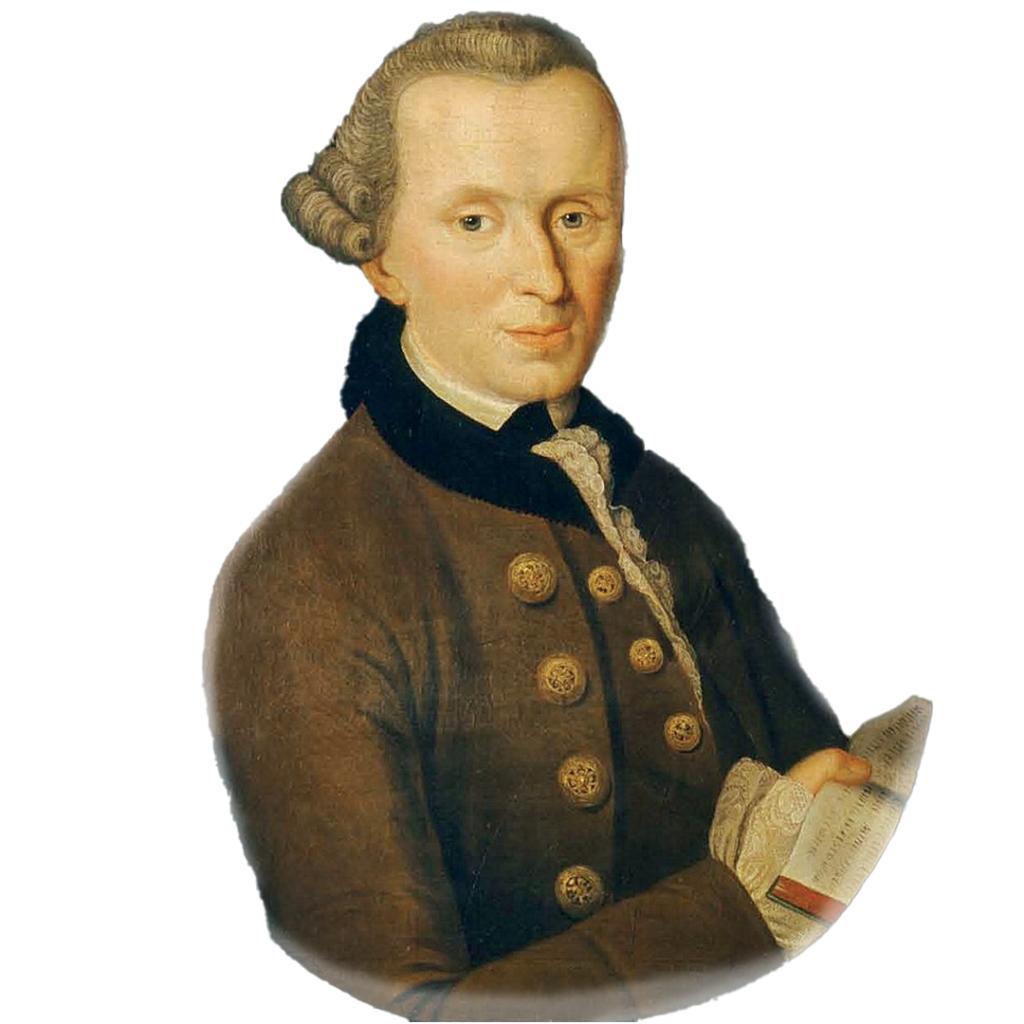Are you ready to meet Immanuel Kant, the giant of philosophy? 18. Kant, one of the most important thinkers of the century’s Age of Enlightenment, is known for his works questioning the limits of reason and the basic building blocks of human knowledge. His philosophical views are still debated today and shape modern thought.
Thanks to artificial intelligence technology, you now have the opportunity to hear Kant’s deep and complex thoughts from his own mouth. This unique experience will deepen your interest in the world of philosophy and give you direct access to Kant’s mind-opening perspectives. This interactive experience offers the opportunity to get to know Immanuel Kant’s life, philosophical views, scientific contributions and social thoughts.

Gaining access to the knowledge and views of a philosopher like Immanuel Kant through AI provides a unique opportunity for philosophical discussions and thought exercises. Through this system, users can gain an in-depth and authentic guide to understanding Kant’s complex theories and philosophical principles. Kant’s epistemological and metaphysical problems in his masterpieces such as the “Critique of Pure Reason” and his ethical theories in the “Critique of Practical Reason” and the “Grounding of the Metaphysics of Morals” are among the building blocks of modern philosophy, and this AI simplifies and presents these complex topics to the user. This is a great advantage for students, researchers and philosophy enthusiasts, especially those who want to learn about Kant’s contributions to the Enlightenment, ethics, epistemology and metaphysics. This AI-powered platform interprets Kant’s ideas in a modern context, providing users with an in-depth knowledge of the past and relating it to the intellectual and moral questions of today.

Immanuel Kant is one of the most important figures of philosophical thought in the 18th century. He was born and lived in Prussia. Kant’s philosophical legacy is shaped by his profound questioning of the foundations of modern philosophy and his groundbreaking theses on fundamental issues such as knowledge, morality and aesthetics. During his tenure as a professor at the University of Königsberg, Kant wrote many works that would profoundly influence the thinking of his contemporaries and future generations. His critical philosophy revolutionized the theory of knowledge through an in-depth examination of the capabilities and limits of human reason. In addition, his theories in areas such as ethics and aesthetics are still being discussed and evaluated by philosophers, ethicists and art theorists today. Kant’s thought is an important source not only for philosophers, but also for deepening our understanding of human knowledge and human experience in general. Kant’s life and philosophical work are therefore considered one of the cornerstones of modern thought.
Immanuel Kant was born on April 22, 1724 in the city of Königsberg in the Kingdom of Prussia (today’s Germany). Kant was born and raised here and spent most of his life. His father, Johann Georg Kant, was a craftsman and saddler with a limited income. His mother, Anna Regina Reuter, was a devout Lutheran and was responsible for the religious education of the household.
Kant was educated at an early age at a school called Collegium Fridericianum. It was one of the most prestigious schools in Königsberg and taught Luther and Classical Greek, as well as mathematics and history. The education he received there played an important role in shaping Kant’s interest in knowledge and thought.
In 1732, he left the Collegium Fridericianum to prepare to enter the University of Konigsberg. After entering university, he focused particularly on theology and philosophy. During this period, he was particularly interested in the philosophical works of Gottfried Wilhelm Leibniz and Christian Wolff and carefully studied their works. He was also interested in mathematics and natural sciences and studied these subjects in depth.
As Kant continued his studies at university, he was greatly influenced by his professors and peers. He was particularly influenced by the lectures of Martin Knutzen (an important mathematician and philosopher). Knutzen helped Kant deepen and develop his philosophical thinking.
Kant’s early life and education played a critical role in laying the foundations for his philosophical career. The philosophical and scientific knowledge he acquired, especially in his youth, influenced the formation of the fundamental works he wrote in his later years.
Since his death, Immanuel Kant has been recognized as one of the most important figures of modern thought. His ideas have not only profoundly influenced philosophical thought, but have also penetrated deeply into the values and institutions of human society. Kant’s legacy therefore occupies an important place not only in the philosophical field but also in human history.
Critique of Pure Reason (1781):
Critique of Practical Reason (1788):
Critique of the Judicial Power (1790):
Kant’s philosophical works are considered among the cornerstones of modern philosophy and form the center of many philosophical debates. His groundbreaking work, especially in the theory of knowledge, moral philosophy and aesthetics, makes him one of the most important figures of modern philosophy.
Browse our most watched content on the topic and discover our viewers’ favorite topics and popular discussions. Don’t miss out on these special episodes that captivate and provoke thought.

İstanbul Okulu; dinî ve felsefî pek çok meseleyi uzman konuklarla ele almayı hedefleyen yepyeni bir YouTube kanalıdır.